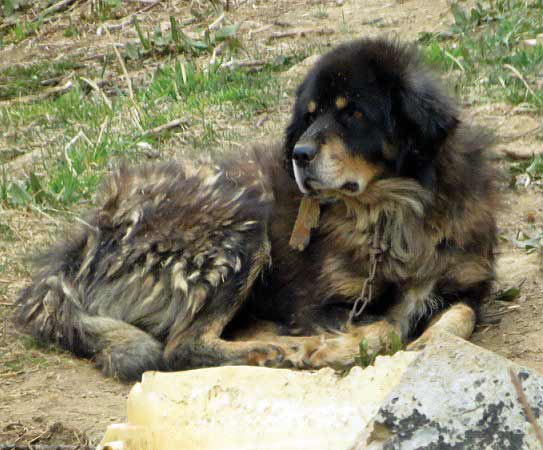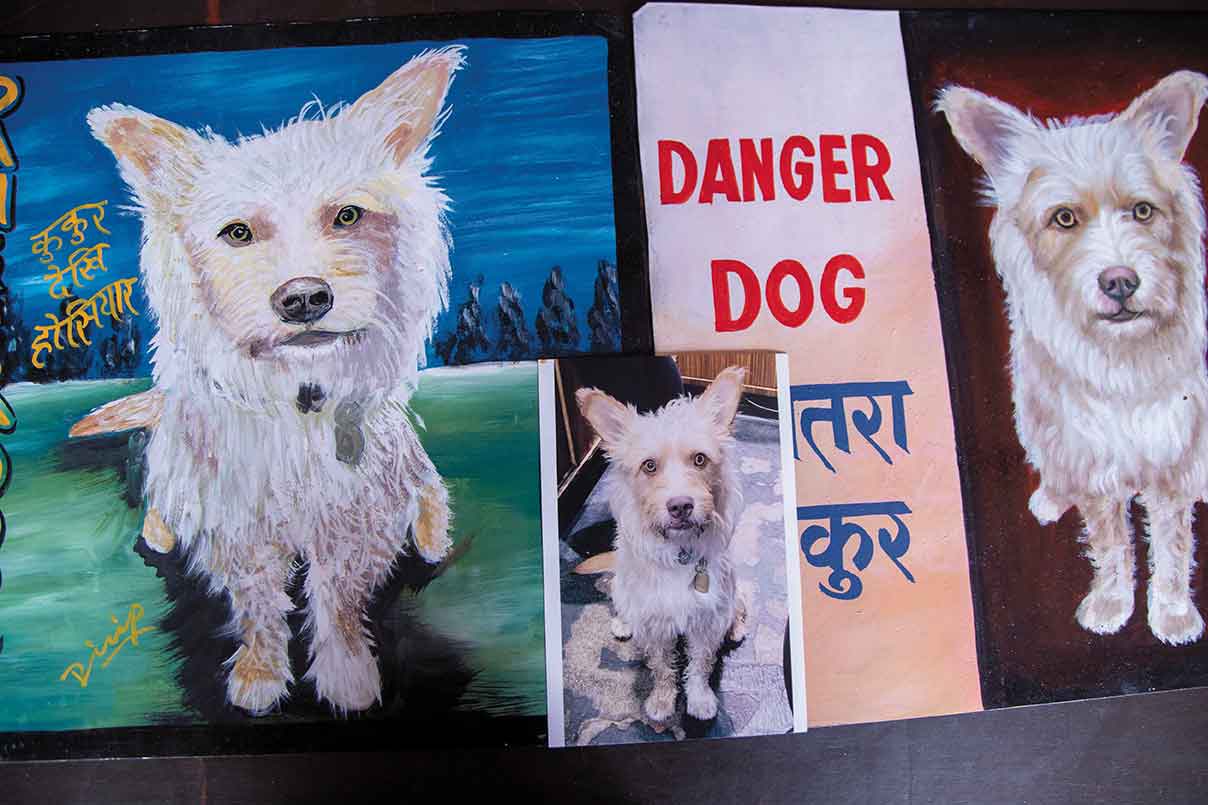While doing research for my book on Tibetan/Himalayan dogs a few years ago, I discovered interesting facts about words, including the etymology of English ‘dog’, Nepali ‘kukur’, and more.
 About ‘dog’: According to the ‘Dictionary of Word Origins’, dog “is one of the celebrated mystery words of the English language.” In Old English the family mutt was ‘dogca’, the ultimate source of our modern term; but where did it come from? The dictionary goes on to tell us that it “has no known relatives of equal antiquity in other European languages,” though eventually ‘dog’ was adopted into other European languages as German ‘dogge’, French ‘dogue’, Spanish ‘dogo’ and Swedish ‘dogg’.
About ‘dog’: According to the ‘Dictionary of Word Origins’, dog “is one of the celebrated mystery words of the English language.” In Old English the family mutt was ‘dogca’, the ultimate source of our modern term; but where did it come from? The dictionary goes on to tell us that it “has no known relatives of equal antiquity in other European languages,” though eventually ‘dog’ was adopted into other European languages as German ‘dogge’, French ‘dogue’, Spanish ‘dogo’ and Swedish ‘dogg’.
The Latin term for dog is ‘canis’ and the Greek is ‘kuon’ (sometimes spelled ‘cuon’ or ‘cyn’), from which canine, cynology and cynic are derived and, in a roundabout way, even ‘canary’, the bird.
About ‘kukur’: There are also probable links between Greek term for dog in several Asian languages. A shorter form of ‘kuon’ is ‘kun’, for which the root is simply ‘ku’, as in Nepali ‘kukur’ and Hindi ‘kutta’, and perhaps even as in Chinese ‘kou’ (or ‘gou’) and Tibetan ‘kyi’, each of which means dog.
About ‘cynic’: At root, it’s from Greek ‘kyn’ or ‘cyn’, as in ‘cynology’, the study of dogs. Furthermore, according to the linguist and dogged cynic, Victor Mair, a cynic is:
“A person who believes all people are motivated by selfishness; a person whose outlook is scornfully and often habitually negative; and a member of a sect of ancient Greek philosophers who believed virtue to be the only good and self-control to be the only means of achieving virtue.”
And a lot more:
“A cynic may be pardoned for thinking that this is a dog’s life. The Greek word kunikos, from which cynic comes, was originally an adjective meaning ‘doglike,’ from kuōn (dog). The word was most likely applied to the Cynic philosophers because of the nickname kuōn given to Diogenes of Sinope, the prototypical Cynic. He is said to have performed such actions as barking in public,” and a few other rather lewd behaviors...
I am reminded of the dual themes of cynicism and conflict found in ‘The Dialogue of the Dogs’ by Miguel de Cervantes (who also wrote ‘Don Quixote’). In ‘Dialogue’, Cervantes defines cynic succinctly through a discussion between two canines, Scorpio and Berganza, one of whom says “gossip itself will call us cynics, which means gossiping dogs.”
About ‘canary’: According to the story, canary birds (yellow or green finches) were introduced to England in the 16th century as caged pets from the Canary Islands. The Canaries are a group of Spanish islands in the Atlantic Ocean, so named because in Roman times one of them was known for a large breed of wild dogs. To the Romans, Insula Canaria meant ‘Island of Dogs’; hence, birds from the dog islands became known as ‘canaries’.
Today’s Canary Island dogs are a large molosser type known as Perro de Presa Canario, literally the ‘Canarian Dog of Prey’. The ‘Dogo Canaria’ was established as a hunting breed in the 16th or 17th century.
‘Dog’ defined: I had to chuckle when I tripped over this definition of ‘dog’ in ‘The Devil’s Dictionary’ (1911). With suitable wit, a dog is:
“A kind of additional or subsidiary Deity designed to catch the overflow and surplus of the world’s worship. This Divine Being in some of his smaller and silkier incarnations takes, in the affection of Woman, the place to which there is no human male aspirant. The Dog is a survival¾an anachronism. He toils not, neither does he spin, yet Solomon in all his glory never lay upon a door-mat all day long, sun-soaked and fly-fed and fat, while his master worked for the means wherewith to purchase the idle wag of the Solomonic tail, seasoned with a look of tolerant recognition.”










